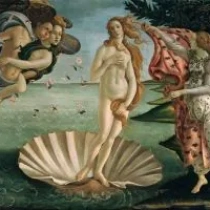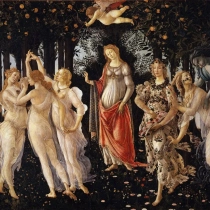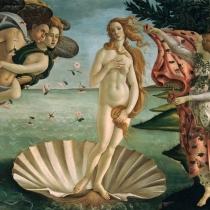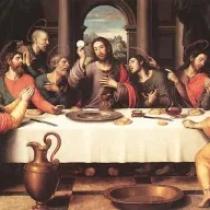 1445 - 1510
renaissance - early
1445 - 1510
renaissance - early
Description Sandro Botticelli (Alessandro Filipepi)
Sandro Botticelli, born Alessandro Filipepi in 1445, Florence, unfolded as one of the luminaries of the Italian Renaissance, his artistic legacy marked by ethereal beauty and mythological narratives. Apprenticed to Fra Filippo Lippi, Botticelli's early years were steeped in the flourishing cultural milieu of Florence, where the Medici family's patronage fueled artistic innovation.
His artistic style, characterized by delicate lines, flowing forms, and a mastery of color, came to fruition in works like "Primavera" and "The Birth of Venus." These masterpieces, commissioned by the Medici, exemplified Botticelli's fascination with classical themes and his ability to infuse them with grace and elegance.
The allure of Botticelli's art lies in his interpretation of classical mythology. "Primavera," an allegory of spring, features an array of mythological figures amid a lush garden, symbolizing the rejuvenating power of nature. "The Birth of Venus," depicting the goddess emerging from the sea, captures the essence of divine beauty with a celestial grace.
Despite his artistic triumphs, Botticelli's later years witnessed a shift in fortune. The fervor of the Renaissance gave way to a more austere climate, marked by the moral strictures of Savonarola's influence in Florence. Botticelli, deeply affected by this cultural shift, distanced himself from secular art and reportedly destroyed some of his own works.
The artist's life unfolded against a backdrop of political turbulence in Florence, and his connections with the Medici, especially Lorenzo the Magnificent, tied his fate to the ebb and flow of Medici power. After Lorenzo's death and the subsequent expulsion of the Medici, Botticelli's artistic output waned.
Botticelli's later works, often religious in nature, reflected the spiritual contemplation that marked his later years. The hauntingly beautiful "Mystic Nativity" is emblematic of this phase, combining religious fervor with a visionary interpretation of biblical events.
Sandro Botticelli passed away in 1510, leaving behind a legacy that transcended the temporal constraints of his era. While his art experienced a period of relative obscurity after his death, the rediscovery of Botticelli's masterpieces during the 19th-century revival of interest in Renaissance art secured his place among the pantheon of great artists.
Botticelli's ability to infuse classical themes with a timeless allure, his unparalleled skill in capturing the essence of beauty, and his profound influence on subsequent generations of artists make him an enduring figure in the tapestry of art history. The delicate grace of his brushstrokes continues to beckon viewers into a world where myth and beauty converge in a harmonious dance.
Gallery
Paintings Sandro Botticelli (Alessandro Filipepi)
Quotes
Art is a divine gift, not an inheritance. It should never be exercised for money and fame but only ever for the joy of seeing one’s artistic creation.
Simplicity is the ultimate sophistication.
He who does not master the nude cannot understand the principles of architecture.
Beauty is the purgation of superfluities.
The artist is the hand that plays, touching one key or another, to cause vibrations in the soul.



No Comments Yet...